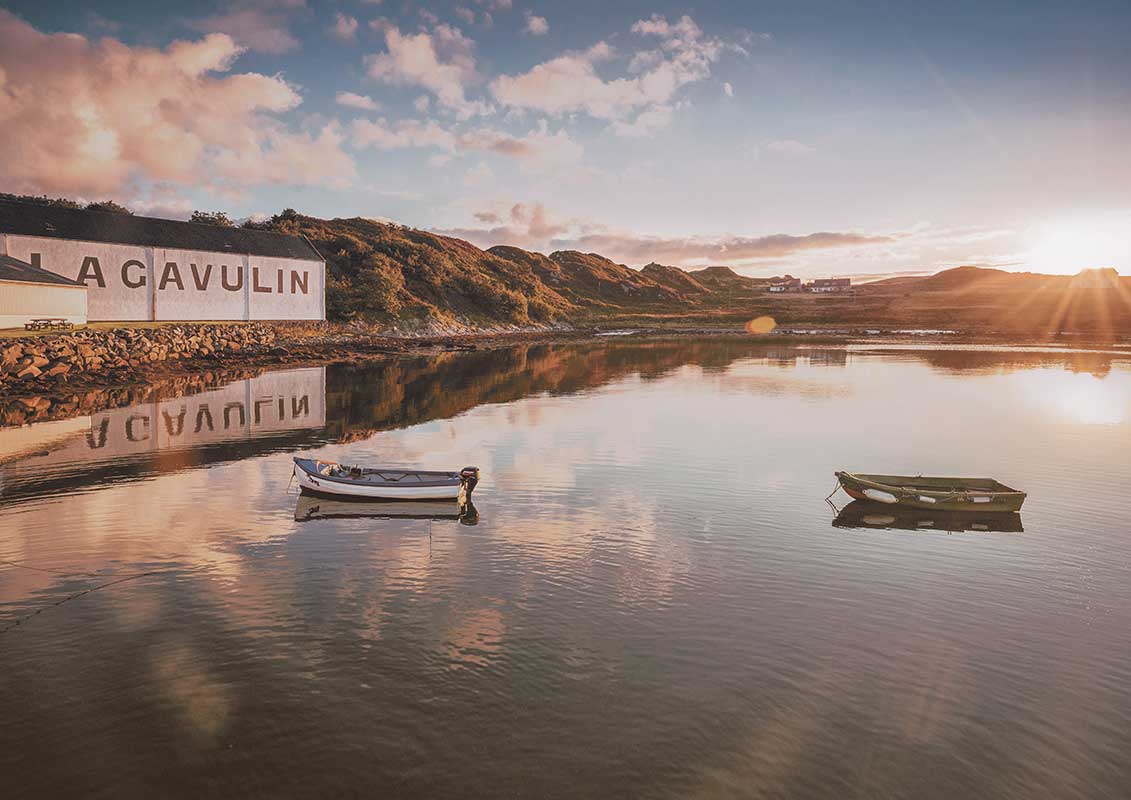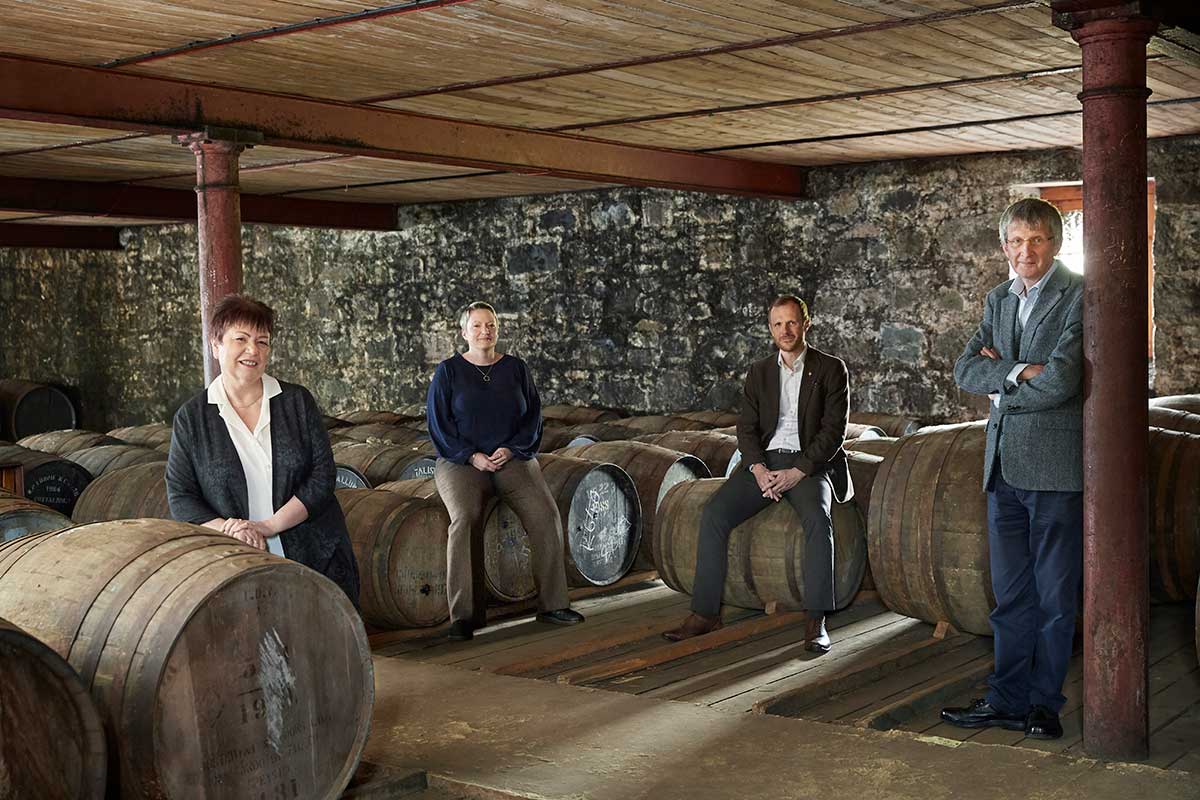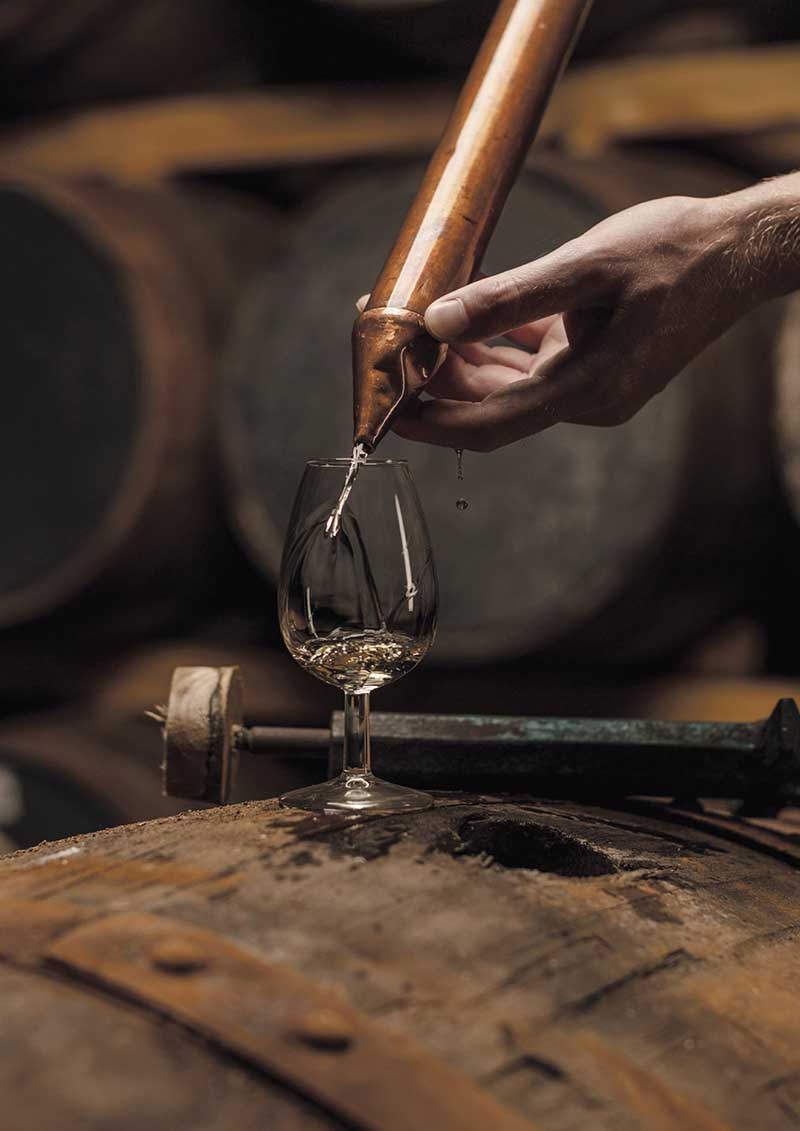This website uses cookies so that we can provide you with the best user experience possible. Cookie information is stored in your browser and performs functions such as recognising you when you return to our website and helping our team to understand which sections of the website you find most interesting and useful.
Why rare whiskies and ghost distilleries are worth their weight in gold
By Michelle Johnson | 31 December 2020 | Food & Drink
When it comes to rare whiskies, Diageo’s global Casks of Distinction programme is creating a singular concept for discerning collectors

In the world of investment, whisky is an asset that is worth far more than its potential return. In fact, its popularity among collectors is experiencing an all-time boom, topping the Knight Frank Investment Index for the first time last year, with 107,890 bottles of Single Malt sold at auction in 2018 in the UK alone. An emerging Asian market has driven unprecedented interest and created new competition among ‘old money’ buyers from Europe and the US, and true collectors are searching further afield for unique whiskies.
Enter Diageo’s most exclusive programme, Casks of Distinction, a private buyers’ club- meets-personalised tasting experience that offers access to the spirit producer’s rarest and most exceptional single malts.
“Whisky is unique in that it has an inherent value above and beyond its quality,” says James MacKay, Diageo’s head of rare and collectible spirits. “What you get with this programme is great quality, but also great rarity. We’re dealing with Single Malts that can never be reproduced. Each cask is like a Picasso painting – unique, irreplaceable and incredibly precious. And it’s this combination that is feeding the excitement among connoisseurs.”
The Casks of Distinction programme is curated by a team of four master blenders – including Johnnie Walker’s Jim Beveridge, awarded an OBE this year for services to Scotch whisky – who draw the very best selection of single malts from stocks of Diageo’s 28 operating distilleries, such as Talisker and Mortlach, and closed or ‘ghost’ distilleries indluding Port Ellen and Brora.
“We’ve got close to 10 million casks maturing within Diageo’s collection, so it’s incredibly labour-intensive if we’re going to find the real gems,” says MacKay. “Between them, our master blenders spend an estimated 4,200 hours each year assessing whiskies and looking for those rare wonders. >>

“It’s very exciting, and we’re fortunate to have such extensive whisky stocks. But none of us can take credit for what the distillery and maturation managers did 30 or 40 years ago,” he says. “Right from the beginning of Casks of Distinction, there was always more demand than we were able to supply, so unfortunately there’s always the risk of disappointment. But it’s very exciting to see how much interest and passion our customers have across many cultures and countries.”
For UK buyers, the programme is offered by appointment only with Mayfair merchant Justerini & Brooks. There, collectors can taste curated selections during one-on-one appointments.
“We might spend a good hour speaking through different styles, what people like, liquids that bring back memories, like a location or style,” says Tod Bradbury, head of rare and collectible whiskies. He says a major point of interest from buyers has been learning the history of casks from ghost stock. “When the industry had a downturn and we closed the doors on some stills, we never knew how beautifully aged the stock would be when it came out the other side. There’s a bit of romance there. The stills might be gone, the people might be gone, but we still have this incredible liquid.”
“I think the ghost distillery offering is so special to our customers because these whiskies can simply never be made again,” agrees MacKay. “It feels different when you open the bottle. When you share this with your friends or guests, they’ll know that they’re being treated to something completely irreplaceable and finite. That’s why Port Ellen and Brora whiskies are so remarkable. Once they’re gone, they’re gone forever. There is something very romantic about that.” >>
Related: This Provence sommelier shares her essential tips to curating your personal wine cellar at home

Of the closed Scottish distilleries, Brora is perhaps the most famous. The distillery, which operated from 1819 to 1983, has attained cult status among connoisseurs and whisky lovers, with a 40-Year-Old 1972 Vintage fetching £54,450 at auction in October. The distillery will reopen this year thanks to investment from Diageo. “Brora is probably one of the loveliest stories of any distillery,” says MacKay. “It had a short period of success in the Highlands during the ‘Age of Peat’, but it was only after it ceased running that we realised, given time to age, it has produced one of the world’s greatest ever whiskies.
“There’s another distillery called Port Dundas, which is even more esoteric and unknown. It’s actually a single grain distillery rather than a single malt, and we have a cask filled in 1966 that is in absolutely spellbinding condition. It’s very unusual that whiskies can mature for that long without starting to deteriorate.”
Perhaps surprisingly, both MacKay and Bradbury agree there’s no discernible difference in trends between geographic regions. Instead, it’s about taste, quality and history.
“Styles will continue to change as people continue to explore the different parts of Scotland and brands out there,” says Bradbury. “Certainly everyone’s getting turned on by Single Malt Scotch Whisky and there’s a plethora of choice.”
MacKay adds: “Our clients are incredibly diverse and globalised, but the one thing they all share is an wonderful passion for whisky. 10 years ago whisky wasn’t that well known in Asia, outside of Japan, but now people are embracing the story and providence of our whiskies as well as the quality.” While Casks of Distinction is limited and highly personalised for collectors, the heart of the programme is not selling stock, but sharing the romance. “Obviously, many people will hold onto unique bottles, because they are very precious assets, but I’ve never met someone who only looks at a bottle or cask as something to buy or sell. Our clients are passionate about whisky, and that investment is about sharing in something completely one of a kind.”







